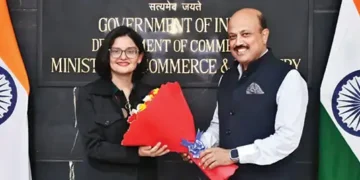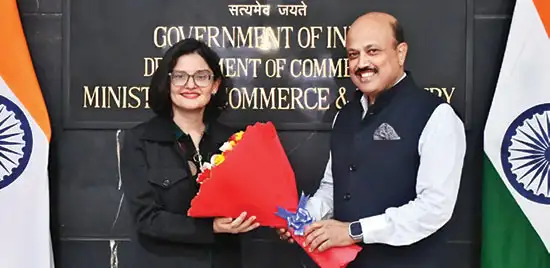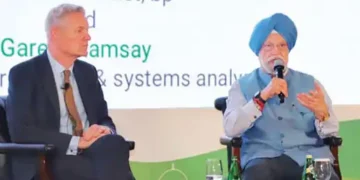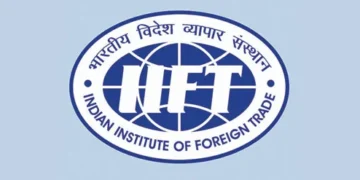Blitz Bureau
NEW DELHI: NEW DELHI: The seventh meeting of the India-Brazil Trade Monitoring Mechanism (TMM) underscored the commitment between India and Brazil to foster economic growth, reported IANS.
Rajesh Agrawal, Commerce Secretary, and Tatiana Lacerda Prazeres, Secretary of Foreign Trade at the Ministry of Development, Industry, Trade and Services for Brazil, co-chaired the meeting.
During the meeting, held here on October 7, both sides extensively discussed matters related to bilateral trade and outlined a roadmap for taking it forward.
The discussions included the review of bilateral trade and investment relations, and expansion of India-MERCOSUR preferential trade agreement (PTA). MERCOSUR is a South American trading bloc formed in 1991 by Argentina, Brazil, Paraguay and Uruguay. Later, Bolivia and Venezuela were admitted to the bloc.
Multifaceted ties
Also discussed at the meeting were market access and visa, sectoral collaborations in pharmaceuticals and healthcare, chemicals and petrochemicals, MSME, banking and finance, promotion of industries and internal trade, multilateral issues and other matters of mutual interest. India and Brazil have been strong diplomatic partners for more than 75 years now. The two countries have built a close and multifaceted relationship marked by shared democratic values and a commitment to development.
During the State visit of the Prime Minister Narendra Modi to Brazil in July this year and his meeting with Brazilian President Luiz Inacio Lula da Silva, the two set a target to increase bilateral trade to $20 billion over the next five years.
Largest partner
Brazil is the largest trading partner of India in the Latin American and Caribbean region. During the FY 2024-25, the bilateral merchandise trade stood at $12.19 billion.
India’s export story is clearly at a turning point. While the US will continue to be a vital partner, the extraordinary growth of exports to countries such as the Netherlands, UAE, Australia, Saudi Arabia, South Africa, Brazil, and Mexico demonstrates that the country is no longer dependent on a single market.

































